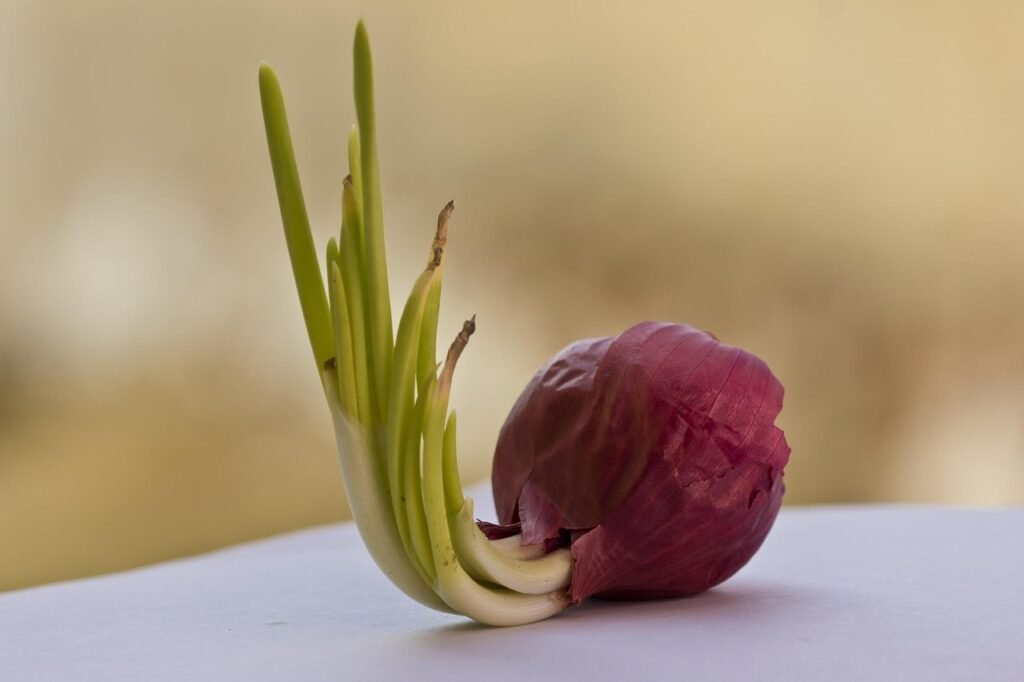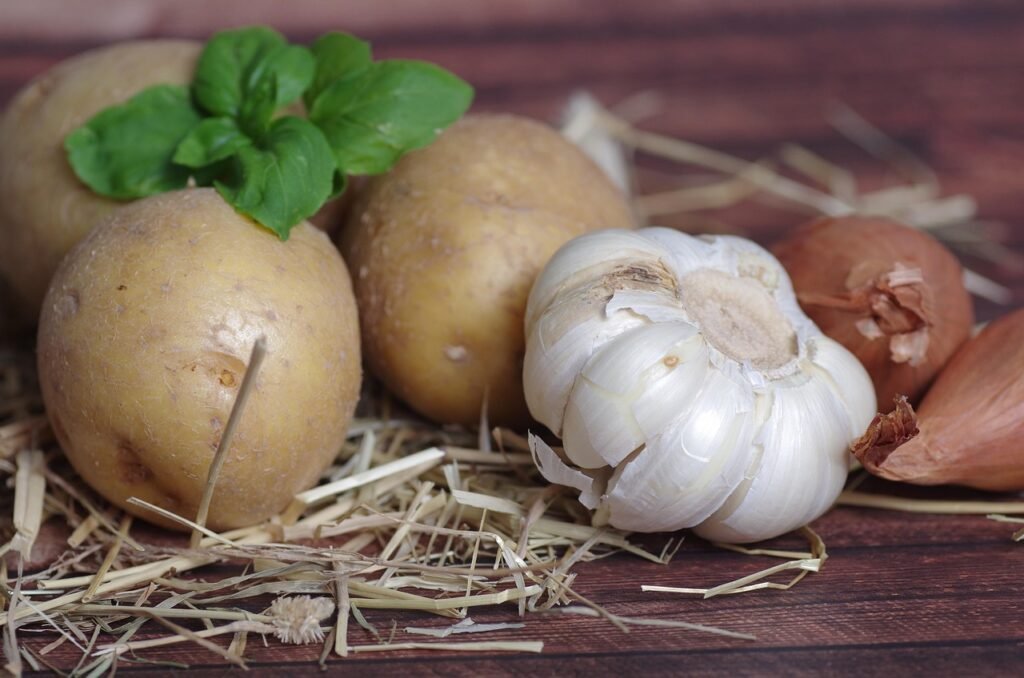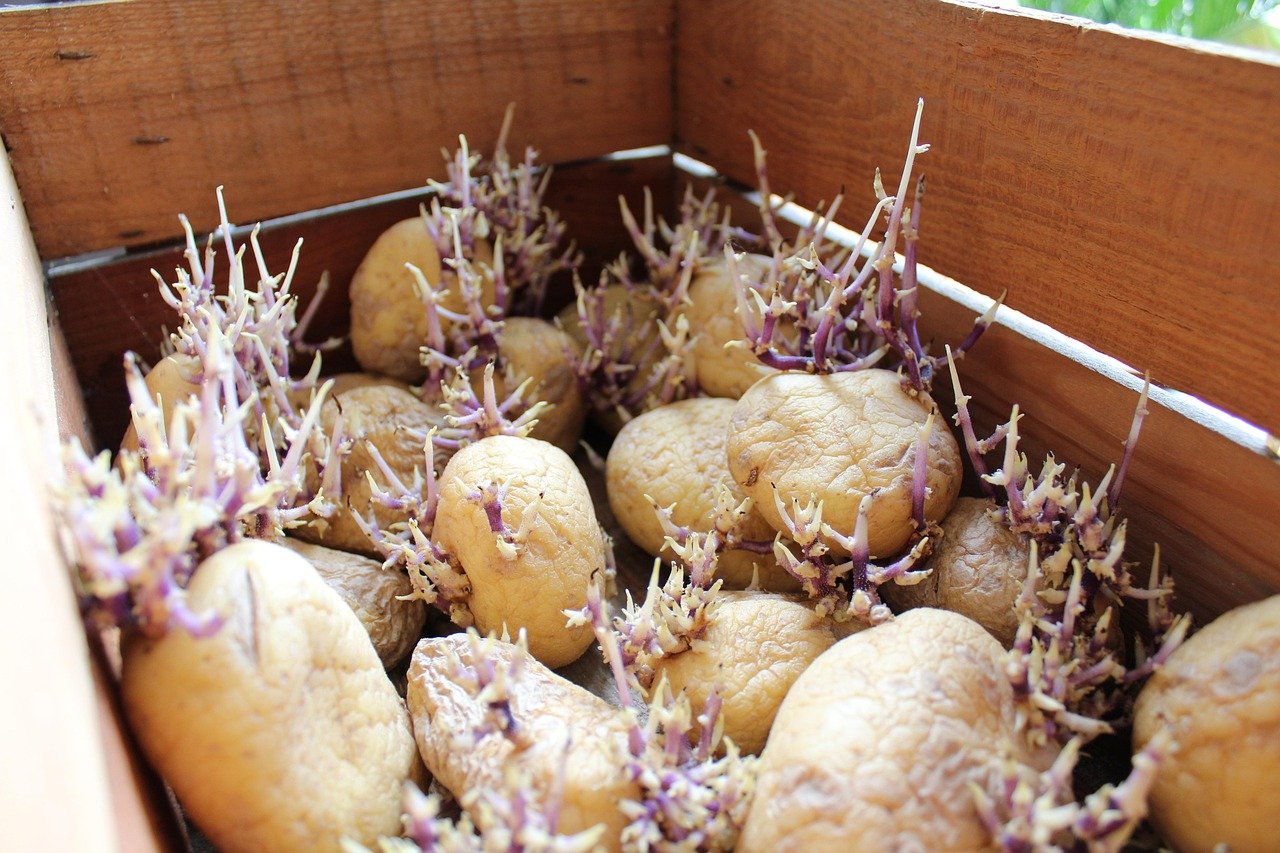You reach into your pantry for a potato and find it’s started to sprout. It’s common kitchen dilemma. Do you cut off the sprouts and use it, or should it go straight into the compost bin?
The answer isn’t the same for every vegetable. Here’s a clear, expert-backed guide on whether to eat or throw away sprouted potatoes, onions, and garlic.
The Deal with Sprouted Potatoes
When a potato sprouts, it’s a natural sign that it’s trying to grow into a new plant. This process triggers an increase in naturally occurring toxins called glycoalkaloids, like solanine. These compounds protect the potato from pests and fungi but can be harmful to humans in high concentrations.

So, are they safe to eat?
The safety depends on the potato’s condition. Experts, including food safety agencies, advise the following:
If the sprouts are long (over an inch), the potato is soft, wrinkled, or has a greenish tint: Play it safe and throw it away. The toxin levels are higher, and the potato has lost most of its nutrients and flavour.
If the sprouts are small and the potato is still firm: You can likely use it. Carefully cut out the sprouts and any “eyes” or green spots. The green colour indicates higher solanine levels. Peel the potato thoroughly before cooking.
Why be cautious? Consuming high levels of solanine can lead to food poisoning. Symptoms include nausea, vomiting, stomach cramps, and, in severe cases, headaches and neurological issues. While serious poisoning is rare, it’s best to avoid the risk.
How to Store Potatoes to Prevent Sprouting
Keep your potatoes fresh longer by storing them correctly:
- Keep them cool: Store in a cool, dark place (ideally between 3-10°C or 37-50°F). A pantry or cellar is perfect.
- Keep them dry: Do not wash potatoes before storing them. Moisture speeds up spoilage.
- Keep them away from onions: Store potatoes and onions separately. Onions release gases and moisture that can cause potatoes to sprout faster.

The Deal with Sprouted Onions and Garlic
The rules for alliums like onions and garlic are completely different.
- Are they safe? Yes. Sprouted onions and garlic are generally safe to eat. The sprouts grow using the nutrients stored in the bulb or clove. They do not produce harmful toxins like potatoes do.
- How do they taste? The sprouted part (the green shoot) can taste more bitter or sharp. The original onion or garlic clove might also become softer and less potent as its energy goes into sprouting.
- What to do: You can simply cut the sprout out of the center of the onion or cut the garlic clove in half and remove the green shoot. The rest is fine to cook with. In fact, the green shoots from garlic are edible and are used similarly to chives or green onions.
Simple Safety Rules to Follow
- Potatoes: When in doubt, throw it out. Never eat potatoes that are green, soft, or heavily sprouted.
- Onions & Garlic: They are safe. Remove the bitter sprout and use the rest.
- Storage is key: Always store your produce in a cool, dark, dry place and keep potatoes and onions separate to maximize their freshness.
By following these simple guidelines, you can reduce food waste and ensure you’re preparing safe, delicious meals for your family.


















